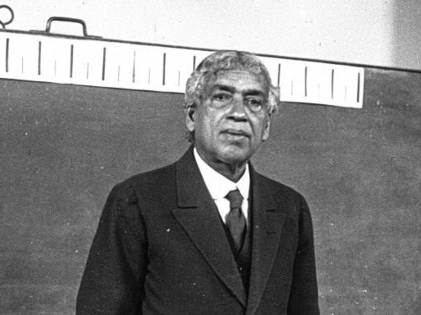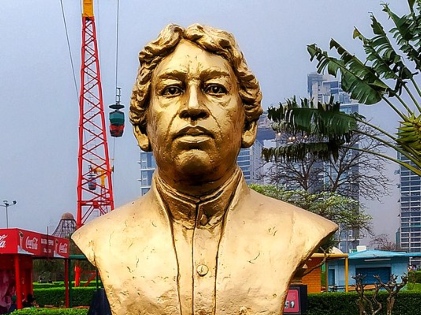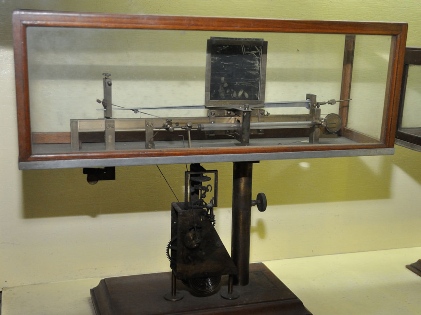An eminent botanist, biologist, and physicist, Sir Jagadish Chandra Bose is held as the father of science fiction. Born in the year 1858 in Bikrampur, Bengal, Bose was the frontrunner in the investigation of radio as well as microwave optics. Aside from that, his contributions to botany are highly treasured. He was the first to introduce experimental science to the Indian subcontinent. He was an avid botanist and therefore, failing to quantify the growth of plants under certain conditions frustrated him. The crescograph came into being and brought around a revolution in the world of botany. Before jumping into the details of Bose’s invention, one must know the life and times of one of the greatest scientists the world has ever known.
Childhood and Early Life
 Sir Jagadish Chandra Bose was born in an affluent family. By profession, his father was a magistrate and the Bose household never had any dearth of money. As a matter of fact, they always made it a point to donate a good part of their wealth in feeding the children living nearby. Many of these kids were school friends of little Jagadish. Listening to the adventures that his friends used to enjoy outdoors, he developed an interest in natural science.
Sir Jagadish Chandra Bose was born in an affluent family. By profession, his father was a magistrate and the Bose household never had any dearth of money. As a matter of fact, they always made it a point to donate a good part of their wealth in feeding the children living nearby. Many of these kids were school friends of little Jagadish. Listening to the adventures that his friends used to enjoy outdoors, he developed an interest in natural science.
This interest took him to London, where he got enrolled at the prestigious University of London to study medicine. Unfortunately, his ill health prevented him from continuing. His brother-in-law and the first Wrangler from Bengal at the University of Cambridge, Anandamohan Bose, recommended his name and helped him get admission in the most esteemed Christ’s College.
Education and Interest in Natural Sciences
 Bose’s quest for natural sciences helped him secure a BA degree in Natural Sciences Tripos from the University of Cambridge as well as a BSc degree from the University of London. He had the good luck of being guided by the likes of Lord Rayleigh, Francis Darwin, James Dewar, Michael Foster, Sidney Vines, and Francis Balfour. Sister Nivedita, a social activist, teacher, and disciple of the great Hindu saint, Swami Vivekananda, had a great influence on Bose’s life. She edited his manuscripts and organized financial aid for him.
Bose’s quest for natural sciences helped him secure a BA degree in Natural Sciences Tripos from the University of Cambridge as well as a BSc degree from the University of London. He had the good luck of being guided by the likes of Lord Rayleigh, Francis Darwin, James Dewar, Michael Foster, Sidney Vines, and Francis Balfour. Sister Nivedita, a social activist, teacher, and disciple of the great Hindu saint, Swami Vivekananda, had a great influence on Bose’s life. She edited his manuscripts and organized financial aid for him.
Later in life, Bose became an acting professor of physics at one of the most renowned institutions in Kolkata (then, Calcutta). However, he never gave up his quest to learn new things. He studied almost everything that he came across. His contribution to the field of physics is also well-known. He is credited with the invention of the version of the radio waves detecting device – coherer.
Crescograph
 The most astonishing thing about Bose was that he never patented his inventions. He could have made easy money through that avenue. But he declined any such advances and emphasized sharing his work with others so that science could progress. While researching radio technology, he shifted his thoughts to botany. He has always been keen to know how plants grow under specific conditions. This led to Bose engineering the crescograph.
The most astonishing thing about Bose was that he never patented his inventions. He could have made easy money through that avenue. But he declined any such advances and emphasized sharing his work with others so that science could progress. While researching radio technology, he shifted his thoughts to botany. He has always been keen to know how plants grow under specific conditions. This led to Bose engineering the crescograph.
One end of the wire was gently attached to a plant and the other end was attached to clockwork and the plant’s growth every hour was studied with the help of the crescograph that used these wires. As a plant kept on growing, the growth was recorded on smoked glass. Bose used this device to figure out how plants react when exposed to different kinds of lights. He didn’t forget to publish whatever he researched on plant growth.
Science Fiction
 This was not all that Bose preferred to stay involved in. Despite being busy with his inventions in physics and botany, he also sneaked out time to write science fiction. Niruddesher Kahini, his most popular work dealt with how a bottle of hair oil can stave off a tornado.
This was not all that Bose preferred to stay involved in. Despite being busy with his inventions in physics and botany, he also sneaked out time to write science fiction. Niruddesher Kahini, his most popular work dealt with how a bottle of hair oil can stave off a tornado.
The truth is, Sir Jagadish Chandra Bose’s genius was not appreciated enough during his lifetime. But there is no iota of doubt that his work in science and literature has been unparalleled. Slowly, the world has come to realize that he was nothing but an altruistic genius.
The Institute of Electrical and Electronics Engineers has honored Bose for his amazing work with the radio. He is a venerated figure for the Crescograph’s modern users. The father of Bengali science fiction deserved to show off his talent, which he never did.





